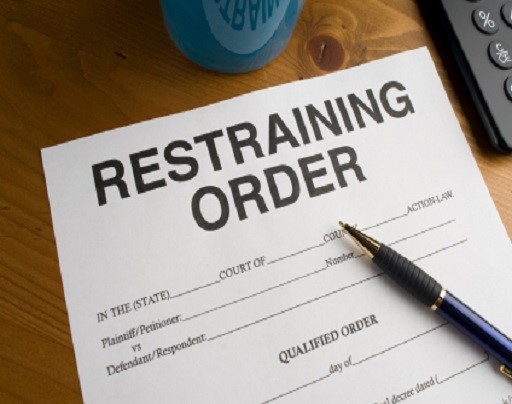WHAT IS AN APPREHENDED VIOLENCE ORDER?
An apprehended violence order (AVO) is an order by a local court prohibiting a defendant from doing certain acts against a person in need of protection (the PINOP).
According to the NSW Bureau of Crime Statistics & Research, more than 37,000 final AVOs were granted by NSW courts in 2019.
The Bureau also found that 20% of final orders were breached once and that nearly 800 final AVOs were breached three or more times.
Are there different types of AVOs?
Yes. There are two types of AVOs:
- An Apprehended Domestic Violence Order: this covers the immediate family members and relatives of the defendant.
- An Apprehended Personal Violence Order: this covers persons other than the above.
Should I consent to an AVO?
Defendants are often told by police and others that an AVO is not a criminal conviction and that there is no legal penalty if they consent to an AVO on a “without admissions” basis.
What they are usually not told about is the grave consequences that can flow from consenting to an AVO:
- If, after an AVO is made against you, the PINOP alleges that you have breached a condition of an AVO, police will usually charge you with the criminal offence of contravening an AVO, regardless of whether the allegations may turn out to be false. You have no say in the charging process.
- If you are involved in family law proceedings, you should be aware that there are a number of sections of the Family Law Act that restrict the rights of a parent who has engaged in family violence. Thus, the making of a provisional, interim or final AVO against you may be relied by a family court to restrict or deny you access to your children or to deny you having equal shared responsibility for your child/ren with your partner (see for example, section 61DA(2) of the Family Law Act 1975..
What conditions does a court impose in an AVO?
- All AVOs have the following standard conditions:
1. You must not do any of the following to [the PINOP], or anyone they have a domestic relationship with:
- assault or threaten them,
- stalk, harass or intimidate them, and
- intentionally or recklessly destroy or damage any property that belongs to or is in the possession of [the PINOP].
For example:
You must not do any of these things in person, through another person, or through electronic communication and devices (for example, by phone, text messages, emails, Facebook or other social media, or GPS tracking).
You must not do or say anything that may make [the PINOP] feel frightened, or feel that you may harm them or damage their belongings in any way, including any jointly owned property and pets.
- An AVO can include additional conditions, such as:
- You must not approach the PINOP.
- You must not go near his/her home or place of work.
- You must not damage his/her property.
- A sample AVO can be viewed here https://www.lawaccess.nsw.gov.au/Documents/sample_interim_advo.pdf
Who is protected by an AVO?
An AVO will:
- Protect the PINOP
- Usually protect all persons he/she has a “domestic relationship” with – this means all persons who are living with the PINOP.
What is the difference between a provisional AVO, an interim AVO and a final AVO?
- A provisional AVO is usually made before the first court date of a case. It continues until another order is made by a court. A provisional AVO can be made by certain police officers, registrars and magistrates.
- An interim AVO is usually made on the first date that a case comes before a court. It continues until another order is made by a court. Only a court can make an interim AVO.
- A final order is made after a court hears evidence from relevant witnesses or if it is consented to by a defendant.
How long does an AVO run for?
- The most common length of an AVO is two years.
- However, AVO’s can be made for lesser or longer periods.
Can an AVO be revoked or varied?
There are special rules for anyone wanting to revoke or vary an AVO:
- A PINOP or a defendant can apply to vary or revoke an interim or final AVO.
- Leave of the court is required to vary or revoke an AVO where the PINOP is a child (see section 72B of the Crimes (Domestic and Personal Violence) Act 2007).
- Only a police officer can apply to vary or revoke a provisional AVO where the PINOP is a child (see section 33A(2) of the Crimes (Domestic and Personal Violence) Act 2007).
- Police are empowered to apply to vary or revoke any type of AVO. However, in our experience, police rarely exercise this power

AVO dismissed
Just because serious allegations of domestic violence are made, it does not follow that a court will necessarily make an Apprehended Violence Order.
Today at Burwood Local Court, a Magistrate dismissed a police application for an AVO against our client.
Our client’s wife had alleged that he had pushed her every day, slapped her repeatedly, verbally abused her and stalked her.
Under cross-examination, the wife’s evidence was evasive and inconsistent.
The wife had also alleged that our client had sent her 50 text messages in one day. However, under cross-examination she conceded that the text messages were in fact part of an exchange of text messages between her and our client.
In dismissing the application, the Magistrate found that on the evidence before her, an AVO was not warranted.
The making of an AVO against your client can have significant consequences, particularly if concurrent family law proceedings are on foot.
Further, your client can be exposed to malicious or frivolous claims of breaching an AVO.
It is thus important to strenuously challenge AVO applications that mala fide.
By Namrata Singh

